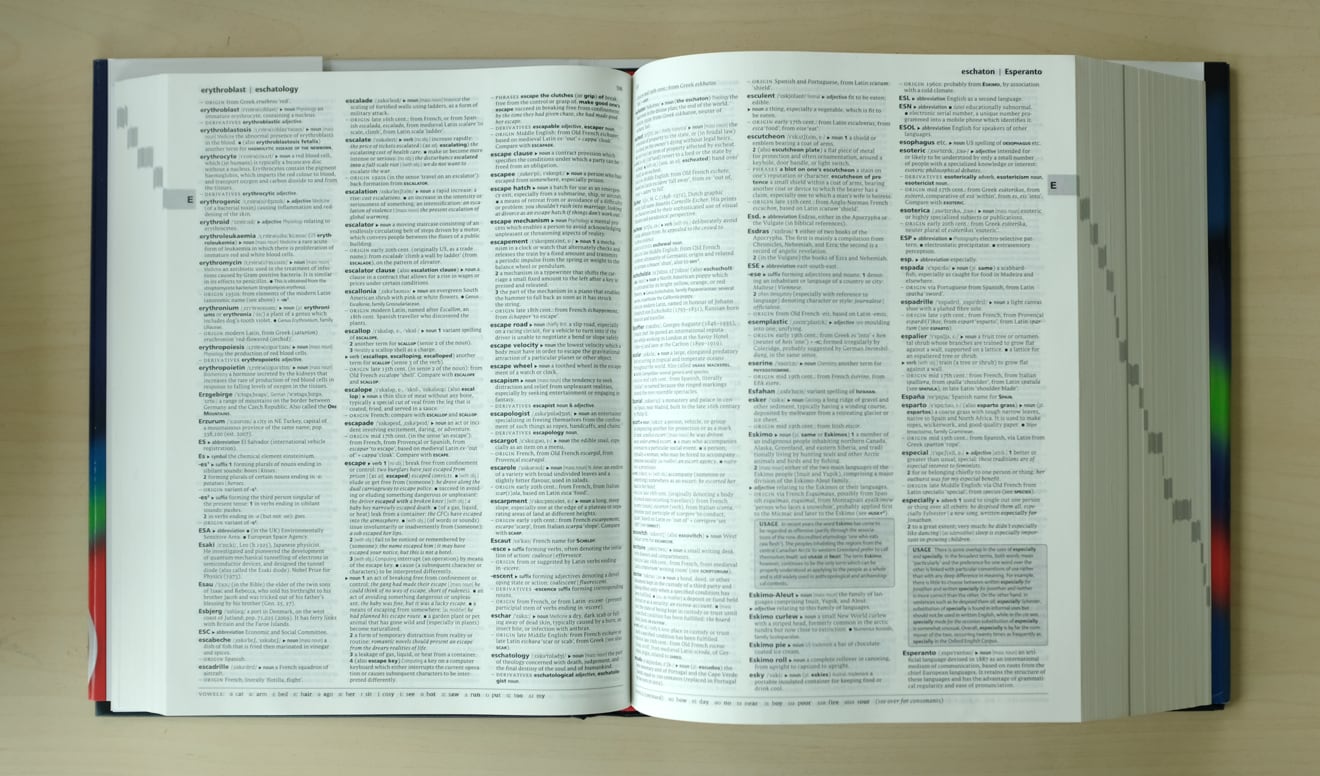Whole Lotta Words
I bought a dictionary, something I suspect few others are doing in 2020. I was inspired by Austeon Kleon’s post about his. I use my computer’s dictionary constantly1 — any time I read an unfamiliar word like “brogue” or am about to make of fool of myself for misusing “portentous” — but as Austin notes, I miss out on the serendipitous discovery you get with a paper version as you look up words. “A feature, not a bug.” I want that in my life.
I bought the beefiest one I could find, the Oxford Dictionary of English. It’s a hefty tome. In a pinch you can use it to stave off a home invasion.

Along the way I learned that the Oxford Dictionary of English is distinct from the Oxford English Dictionary. While the book I bought defines a respectable ~350,000 words, the OED is an ongoing project to document the entirety of the English language. The second edition was published in 1989 as a mammoth 20 volume set.2 Oxford expects to complete the third edition in 2037, at which point it will require the entire Amazon rainforest to print a copy.
My friends and family roundly made fun of me for buying a dictionary. I get it. In elementary school, my classmate Kyle read the dictionary at recess.3 Whether he chose it over Goosebumps out of genuine linguistic curiosity or as intellectual performance art, we all agreed it was the behaviour of a future murderer. For the record, I’m not reading this thing cover to cover like Kyle. I’m not a psychopath.
My early impression of the ODE is positive. Clear definitions, helpful examples. It includes usage information for words that native speakers often confuse, e.g. “seasonal” vs. “seasonable”. Finding a definition is slower than a digital dictionary, but I write for fun when speed is no concern, and I learn interesting words as I flip pages. Like this one:
williwaw n. a sudden violent squall blowing offshore from a mountainous coast
Everyone is going to hate me when I drop “williwaw” into casual conversation, but Kyle will appreciate it.
On macOS, the built-in dictionary is a three-fingered tap of the trackpad away. On iOS and Kindle, a long press on the word. This also opens the thesaurus when you want to get all loosey-goosey with your writing. ↩
I hazily recalled that the University of Waterloo, my alma mater, had some involvement with the OED2. It turns out that they designed the database. Later they spun off the tech to form OpenText. My partner worked for OpenText and they were a major presence at school (their headquarters are just north of campus), but I’m still unclear about what exactly they sell today. Their website touts products like “Covisint Supplier Connection” and “ANX Engineering IT Managed Services”. Oh enterprise software, you always keep me guessing. ↩
Name changed to protect the innocent. ↩